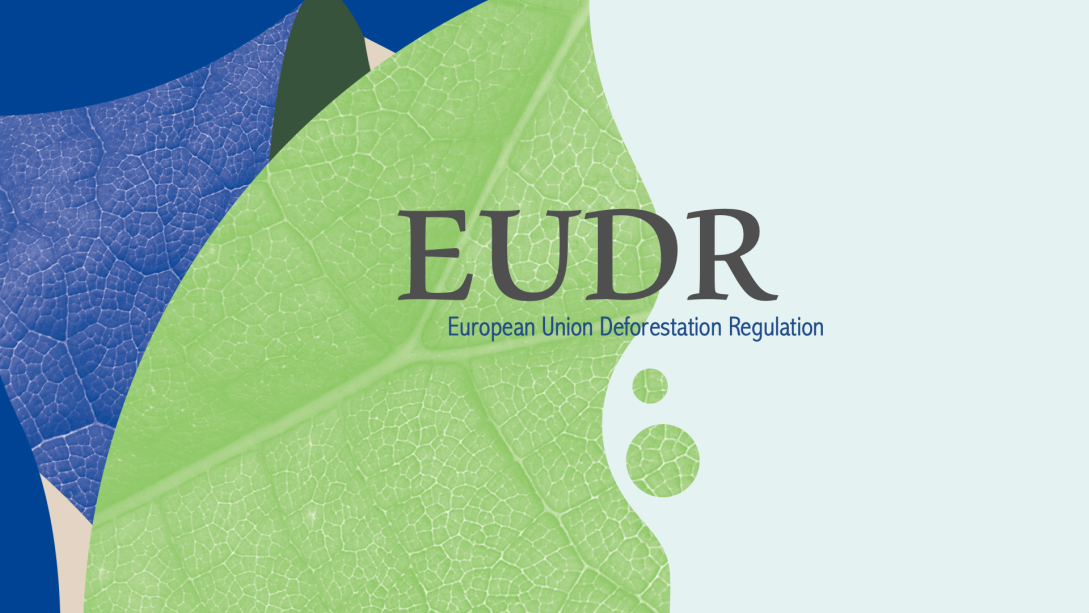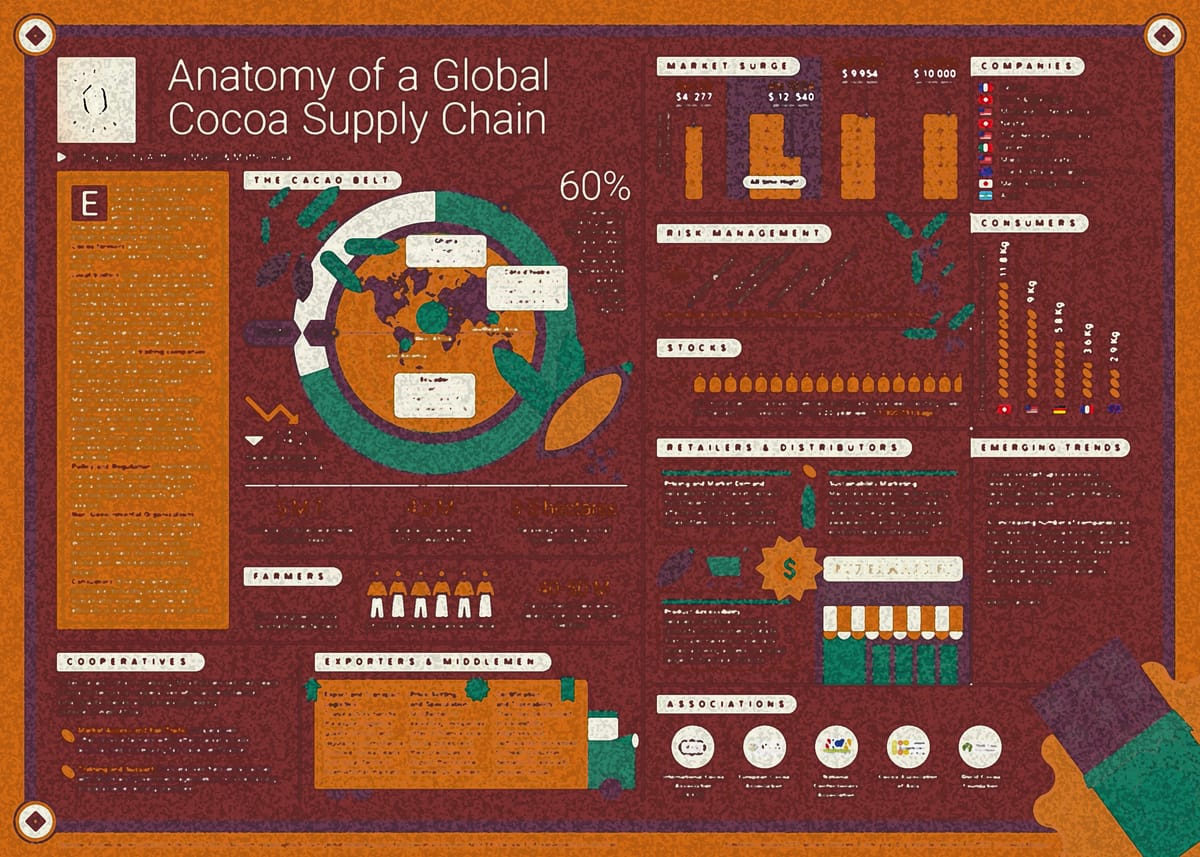Announced before the Easter break, these adjustments aim to reduce administrative burdens on businesses while maintaining the regulation’s core goal: ensuring that products sold within the EU do not contribute to global deforestation.
In 2024, the European Commission held over 300 meetings with stakeholders to facilitate the implementation of the regulation, which took effect in June 2024. The simplified guidelines (see below) have been introduced following last year’s postponement of the EUDR by MEPs, particularly the European People’s Party and other right-wing parties, who pushed to water down the law before it was due to be implemented in December.
In response the EC declared that it would “provide further clarifications on the legislation and explore further simplifications, while fully respecting the objectives of the regulation.”

Earlier this month, another important piece of environmental regulation was delayed when the European Parliament voted to ‘stop the clock ’ on CSDDD and CSRD, which have significant implications for the cocoa sector, leading to a call by a collective of companies and organisations to keep the legislation in place.
So what does it all mean? EUDR key simplifications
Peter Murray, practising attorney and co-founder of Asase Compliance solutions, a specialist EUDR and legal compliance chamber, told cocoardar.com that the approach of the Guidance Document is to highlight and address some practical, day-to-day issues and questions that operators and traders will face after the implementation date; it does not purport to be a comprehensive explanation of all aspects of EUDR.
How the Guidance Document deals with packaging and composite products are examples of this, in his view.
“The Document serves as a useful accompaniment to the EUDR Regulations themselves. As a starting point, the Guidance Document sounds the caveat that its commentary cannot supplant the text of the Regulations. In ordering their business affairs, operators and traders must - often with the assistance of legal advice - arrive at their own interpretation of how the Regulations apply to their unique supply chains. In the case of any interpretative disputes, the European Court of Justice will be the final arbiter.”
Murray goes on to explain that it is perhaps in its exposition of the second requirement, the legal due diligence aspect, that the Guidance Document is most useful.
“Industry role-players have grappled with the notion of legal compliance for agricultural products since EUDR was first promulgated. The Regulations list an extensive array of types of laws with which there must be compliance. They range from land use and environmental laws, to anti-corruption and tax. The difficulty with the Regulations is that they do not, however, provide any detail as to how and to what extent such laws must analysed.”
EC objectives
The European Commission’s recent guidance introduces several measures to streamline compliance, The initiative aims to reduce administrative burdens while maintaining regulatory objectives, according to EU Environment Commissioner Jessika Roswall.
- Deforestation: By the end of June, the EU plans to categorize countries as high, standard, or low risk in terms of deforestation. This classification will influence the stringency of compliance requirements, with imports from low-risk countries facing lighter procedures.
- Annual Due Diligence Statements: Companies are now permitted to submit due diligence statements on an annual basis, rather than for each shipment or product batch.
- Reuse of Due Diligence Statements: For goods previously placed on the EU market and subsequently reimported, existing due diligence statements can be reused, eliminating the need for redundant documentation.
- Authorized Representatives: Company groups can designate authorized representatives to submit due diligence statements on behalf of all group members, simplifying the reporting process.
These measures are anticipated to reduce administrative costs by approximately 30%, according to the Commission’s estimates.
Who’s responsible?
Operators retain full responsibility for compliance with the EUDR, even if they mandate third parties to act as authorized representatives for DDS (Due Diligence Statements) submission (Article 6).
Operators must review their due diligence systems at least annually to ensure that procedures are being followed, processes are effective, and required outcomes are being achieved.
Additionally, operators must update their due diligence systems whenever new developments arise that could influence the effectiveness or comprehensiveness of the system (Article 12).
'Negligible risk'
The EUDR defines ‘negligible risk’ in Article 2(26) as a situation where, based on a complete assessment of product-specific and general information (Article 10) and, if necessary, the application of appropriate risk mitigation measures (Article 11), there is no cause for concern that the commodities or products are non-compliant with the Regulation. Specifically, this means:
Deforestation-Free: The products must not be associated with deforestation after 31 December, 2020.
Legality: The products must have been produced in accordance with the applicable legislation of the country of production.
If any risk criteria reveal a non-negligible level of risk, the product must not be placed on or exported from the Union market.
Has the EUDR being watered down?
The watered-down, or ‘simplified’ measures mean that large companies will, for example, be able to reuse deforestation impact statements when goods previously on the EU market are re-imported.
Writing in EU News, Simone De La Feld, said: “They can submit certifications annually instead of for each shipment or batch on the EU market. It will be sufficient for European companies to collect due diligence declaration reference numbers from their suppliers and use those references for their own declarations.”
Still, Murray thinks that the guidance, will dispels the notion that operators and traders are going to be able to employ “EUDR lite” type solutions: the due diligence required is far-ranging and meaningful.
"Blanket approvals from countries, regulators or co-operatives will not, in the light of the Guidance Document, at all suffice,” he warns.
Stakeholder reactions
While the simplifications have been welcomed by many in the business community for reducing compliance complexities, some environmental organizations express concern. Antonie Fountain of the VOICE Network cautioned that reducing reporting requirements could undermine the regulation’s effectiveness in monitoring and enforcement.
EC comment
“We are committed to implementing the EU rules on deforestation in a spirit of close cooperation, transparency, and open dialogue. Our goal is to reduce the administrative burden on businesses while preserving the objectives of the regulation,” said Jessika Roswall, EU Commissioner for the Environment.
Looking ahead
The European Commission has opened a public consultation on a draft Delegated Act, seeking further input on the scope and implementation of the EUDR. This consultation is open until 13 May, 2025, allowing stakeholders to contribute to the ongoing refinement of the regulation.
As the EU continues to navigate the complexities of environmental protection and economic interests, these simplifications represent a step toward more practical and effective implementation of deforestation-free supply chains, which has previously been delayed by a year to allow companies and competent authorities additional time to prepare for compliance and implementation.

Background on the EUDR
Adopted in 2023, the EUDR targets commodities such as soy, beef, cocoa, palm oil, coffee, timber, and rubber. The regulation mandates that these products must be deforestation-free and produced in compliance with the laws of their country of origin. Originally set to take effect at the end of 2024, the implementation was postponed to 30 December, 2025, for large companies, and 30 June, 2026, for small and medium-sized enterprises, following feedback from industry stakeholders and international partners.
The Document
Guidance on Regulation (EU) 2023/1115 for Deforestation-Free Products
Abstract: This document provides detailed guidance on the implementation of Regulation (EU) 2023/1115, which aims to ensure that commodities and products associated with deforestation and forest degradation are not placed on or exported from the EU market. It covers definitions, obligations for operators and traders, due diligence requirements, risk assessment criteria, and timelines for application. Key topics include the role of certifications, supply chain complexity, legality of production, and specific rules for composite products. The guidance also clarifies land use definitions, such as "forest" and "agricultural use," and provides practical scenarios to illustrate compliance. This resource is essential for businesses, enforcement bodies, and stakeholders navigating the EUDR's requirements.

- 'From Our Desk. To Yours. Daily'
- Sign-up here for free and upgrade to an annual plan with a 35% discount




